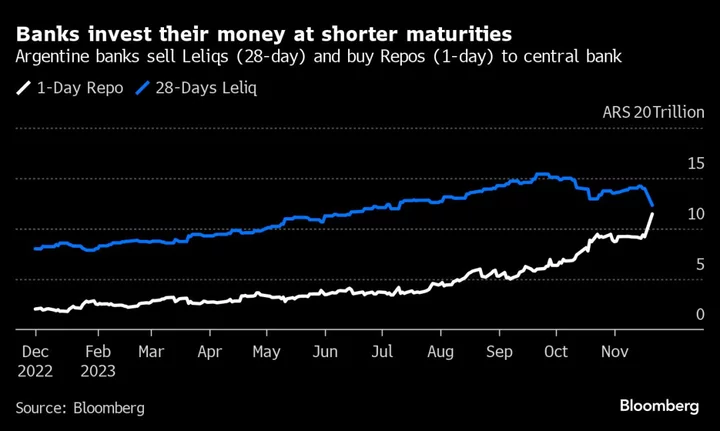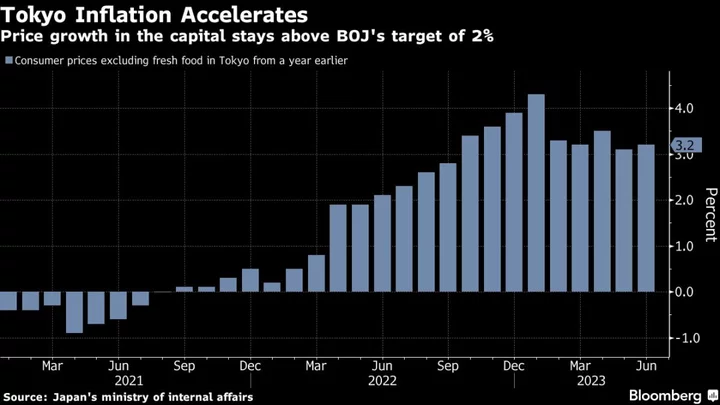Argentina’s banks are fleeing short-term notes issued by the country’s central bank for even more liquid securities as President-Elect Javier Milei’s vague comments on the debt have stoked concern over how he’ll handle the assets once in office.
Lenders are preferring to replace so-called Leliq notes with shorter, lower-yielding securities in order to boost liquidity. They rolled over only 10% of the 1.8 trillion pesos of debt instruments offered by the central bank at auction Thursday, according to people with direct knowledge of the matter. That’s down from 40% in the Tuesday auction, which was already a sharp pullback from before the vote.
The retreat comes as Argentines await for Milei, who was elected in a landslide on Sunday, to give clues about his plans to pull the country from the brink of yet another recession. The libertarian has said the Leliqs expand the supply of pesos in the future and therefore stoke inflation, calling them “a problem” but giving no further detail about his policies.
“The idea is to be as liquid as possible and to go through the uncertainty in the absence of definitions of Milei’s plan,” said Diego Chameides, chief economist at Banco Galicia.
Read More: Milei’s Economic Team Led by Former Head of Macri’s Central Bank
While markets welcomed Milei’s election and concerns about a surge in withdrawals amid his pledge to dollarize the economy failed to materialize, the pullback is beginning to cause tension in local markets. If banks continue to flee Leliqs, which have 28-day maturities and are used by the central bank to absorb pesos, the move could unleash more pesos into the economy and boost inflation that’s already at 143% a year.
The parallel peso, which Argentines use to skirt currency controls, plunged 20% this week to a record low of 1050 per dollar — that compares with 357 per dollar on the official rate.
For weeks now, lenders have been reducing their holdings of Leliqs and increasing their positions in so-called “repos,” one-day peso notes, to ensure that they could accommodate potential policy changes around the election or an increase in peso withdrawals. Repos, which yield less than the Leliqs, now account for around half of the interest-bearing liabilities held by banks, from less than 30% at the beginning of October.
Argentine banks currently have $34.6 billion invested in Leliqs, considering the official exchange rate.
The unwinding from the instruments has already led some lenders to start rejecting or offering lower remuneration for corporate deposits, according to two people with direct knowledge of the matter, who asked not to be named as the information is not public.
If the trend continues, “it can be potential headache” for the parallel FX market, said Pedro Siaba Serrate, chief strategist at local broker PPI.









